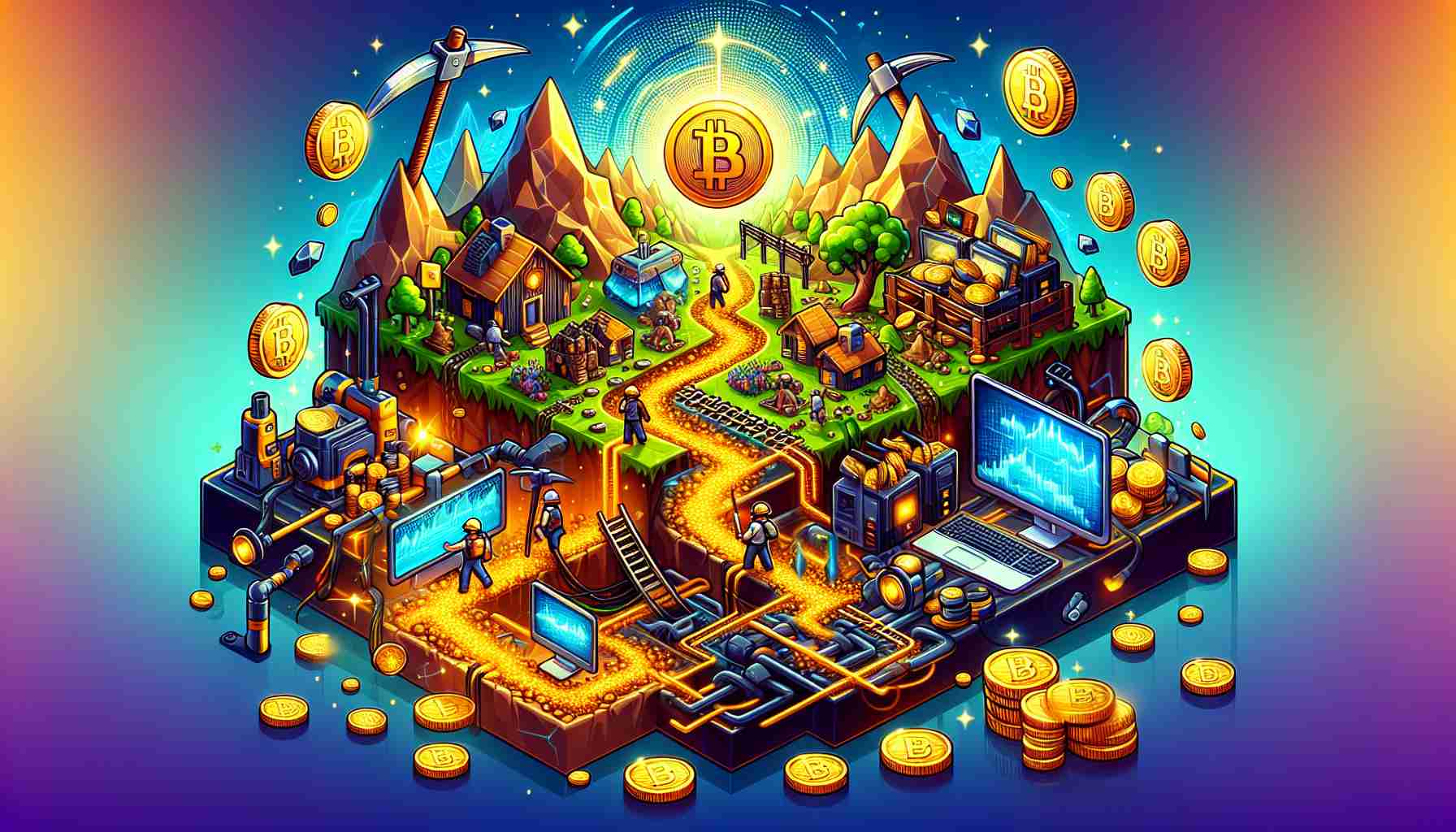In the ever-evolving landscape of blockchain technology, one intriguing development is the rise of crypto mining games that promise players real-world rewards. Unlike traditional video games, where in-game currency and rewards remain confined within the digital realm, these innovative games offer players the opportunity to earn cryptocurrency, which can be converted into real money.
Crypto mining games blend elements of skill, strategy, and in some cases, sheer luck. Players often undertake quests or fulfill tasks that, in return, yield cryptocurrency payouts like Bitcoin or Ethereum. Notable examples of such games include “RollerCoin” and “Cryptopop,” where players simulate crypto mining processes or solve puzzles to earn digital coins.
The appeal lies in the potential to monetize leisure time. For those familiar with cryptocurrency markets, these games provide an engaging way to accumulate digital currency without the upfront costs of electricity or mining hardware typically associated with traditional mining.
It’s crucial to acknowledge that while these games can be fun and potentially rewarding, they do not guarantee significant or stable income. Earnings depend heavily on player engagement, game design, fluctuating market values, and sometimes the random distribution of rewards.
Given the increasing interest in blockchain technology and decentralized finance (DeFi), crypto mining games are likely to attract an even broader audience. However, prospective players should approach with careful consideration and ensure they understand the game’s mechanics and the associated risks in this dynamically shifting space.
The Hidden Impact of Crypto Mining Games on Global Communities
In the digital era, crypto mining games are not just a pastime but a gateway to potential income for individuals across the globe. As these games gain popularity, they are sparking both intriguing opportunities and heated debates. But what ripple effects are these games causing beyond the financial prospects?
Blockchain technology, integral to these games, champions the decentralization of power. By enabling gamers to earn cryptocurrency, it bridges fierce economic divides, providing countless individuals in developing countries with financial inclusion opportunities previously hard to attain. Could these games be a step toward economic equality, offering a new financial frontier for those sidelined by traditional banking systems?
However, with opportunity comes concern. Do these games foster a false sense of financial security? The volatile nature of cryptocurrencies raises worries that participants in vulnerable economies might gamble their earnings, leading to financial instability. How can players protect themselves from the ebb and flow of crypto market values?
From an environmental standpoint, traditional crypto mining’s notorious energy consumption is bypassed, a significant advantage. Yet, questions arise about the long-term sustainability of these games’ servers and algorithms, especially if their popularity surges. Will they innovate to minimize their environmental footprint?
As blockchain-based entertainment continues to evolve, the intersection of technology and finance calls for careful ethical considerations. Prospective players must be vigilant, aware of both the possibilities and pitfalls inherent in digital currencies.
For more insights into blockchain technology, visit Ethereum or Bitcoin.
















